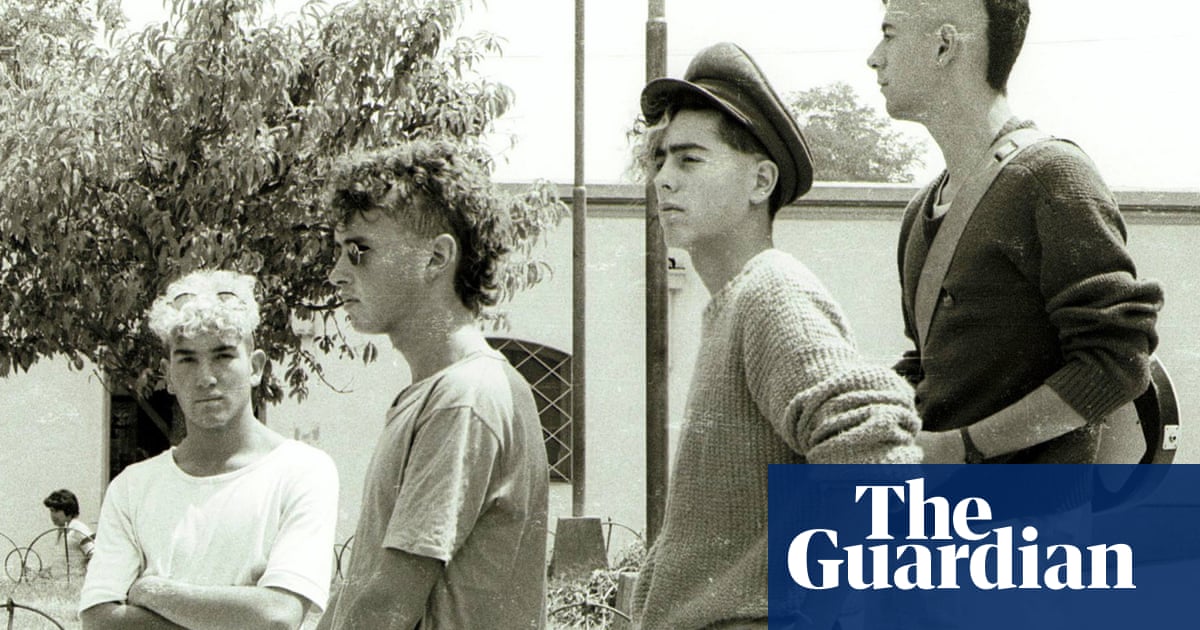
There are big, messy lives that can be called operatic and then there was Alma Mahler’s. After her first kiss with Gustav Klimt as a teenager and dreams of a career in composing, passionate love affairs with a dizzying array of bona fide geniuses of the early 20th century came in quick and overlapping succession.
Men including the composer Gustav Mahler, the writer Franz Werfel and the Bauhaus founder Walter Gropius were bedded, wedded and inspired by Alma, “the most beautiful woman in Vienna” at the fin de siècle. A subject of endless fascination for most of the last 150 years, the charismatic diarist and muse, alternatively described as a monster and the greatest femme fatale of her age, is now getting a fresh appraisal in an opera that will have its world premiere in her home town later this month.
The Israeli composer Ella Milch-Sheriff’s Alma, at Vienna’s Volksoper, focuses on the protagonist’s tragic experiences with motherhood after an unrelenting series of miscarriages and fatal child illnesses, as well as her thwarted creative identity, slippery relationship with the truth and unabashed eroticism.
The story unfolds backwards, beginning with Alma as a fiftysomething embittered alcoholic who is still grieving the loss of several children, lovers and her own musical potential. She is accompanied only by her surviving daughter Anna, whom she had with Gustav. Anna is presented throughout as a 30-year-old woman, a kind of hypercritical one-woman chorus. “Is there an artist you haven’t slept with?” she wryly asks her mother after catching her once again in the act.
Milch-Sheriff said she saw Alma’s dead children, who haunt her on stage during the production, as both an enduring trauma she never overcame and a metaphor for her stillborn artistic ambitions, which she is seen on stage literally burying even as she skips her own babies’ funerals.
Gustav Mahler, 19 years her senior and already the head of the Vienna Court Opera, wooed the talented young Alma but then gave her a fateful ultimatum when she tried to pursue her own composing in his shadow.
“Of course, she is attracted to him and to his position and to his mind – maybe not so much to his body, but that’s another story. And he is, of course, attracted to her,” Milch-Sheriff said, speaking by video call from her flat in Tel Aviv.
“But he made a demand of her to give up her music. So this decision which she made, it changed her life. And for me, it was the beginning and the end of her life.”
Milch-Sheriff, who is known in Israel and the German-speaking world for works including The Banality of Love, about the affair between the philosopher Hannah Arendt and her mentor Martin Heidegger, said she had her own experiences of being nearly eclipsed by her husband, the composer Noam Sheriff who died in 2018.
“For me, as a female composer of the 21st century, being married to a 20 years older composer and conductor who was famous in Israel and outside Israel – I was 28, he was 48 – I know this feeling of being paralysed by this great character and personality,” she said. “But luckily enough my husband never demanded for me to give up my music.”
Alma, by contrast, “felt as if she murdered her own children like Medea,” she said. “She didn’t do it by her own hands, but by giving up her soul. She murdered her ability to love, and to care for her children.”
While painting an empathetic portrait, Milch-Sheriff does not elide Alma’s virulent anti-Jewish sentiments despite her love for Mahler and Werfel, both Jews.
“These times in Vienna, it was like eating wiener schnitzel to be antisemitic,” said Milch-Sheriff, the daughter of two Holocaust survivors. “It was the general custom in Vienna so she was no different in that respect.”
She noted, however, that Alma had also been instrumental in helping Werfel to escape Nazi-occupied Europe, years after both had expressed admiration for Adolf Hitler, and helped his efforts to “revive German culture”.
Annette Dasch, the soprano who plays Alma from middle age back to the first blush of womanhood, said grappling with such hateful dialogue in the libretto by the Israeli author Ido Ricklin was tough.
“There are sentences like ‘the Jews poisoned my life’ – especially for me as a German, I had real difficulty saying them, and it’s only because it was written by an Israeli that I can do it. But every time, if I’m honest, it takes a lot out of me.”
Milch-Sheriff credits her fellow Israeli, Omer Meir Wellber, the opera’s conductor and a longtime collaborator, with ensuring that the show could premiere in Vienna, where she said it belonged.
Dasch and the Vienna-based director Ruth Brauer-Kvam said the current success of extremist forces in Germany and Austria, where during rehearsals the far-right FPÖ came first in a national election, formed a troubling backdrop to the show.
“We’re now in the 20s again and of course you cannot compare the two [decades] but there are parallels in the sense that everything is kind of falling apart with the wars and other conflicts and people are feeling extremely insecure,” Brauer-Kvam said. Alma’s era was “the most exciting, but also the scariest times”.
For Milch-Sheriff, who calls herself a peace activist and a political opponent of the prime minister, Benjamin Netanyahu, it was the “crumbling” of Israeli society that shaped her writing about early 20th-century Europe.
During the 7 October 2023 attacks in Israel, “I was in the middle of composing the opera and I couldn’t work for two months, not even hear the sound of music. Everything seemed to me so meaningless.”
Now, “there is a huge split between half or maybe more than half of the Israelis who went extreme right and the liberals, so to say, the centre and left. I don’t know if it will ever be solved.”
All three women said they were clear-eyed about Alma’s many faults but also felt protective of her and her prodigious talents, noting the role her prolific libido played in generating suspicion against her to this day.
“People still think that when a woman lives out her sexuality to the fullest that they have to insult her or place her in some box while it’s been accepted for many great male artists for centuries,” Dasch said.
“I can already imagine that the relatively explicit sex scenes in this opera will be a scandal and then I think: look, they’ve been putting on Don Giovanni for [nearly] 300 years and no one is getting hot under the collar.”
Milch-Sheriff said that she hoped by moving backwards in time she could help the audience identify the points of no return in Alma’s bold, broken life.
“Will the audience at the end of the opera love her or hate her? My answer is I don’t mind as long as they have more perspective and understanding towards her,” she said. “That’s why she still interests so many people around the world, because it’s not something that you can say yes or no to. It’s a question mark and it will remain so.”












